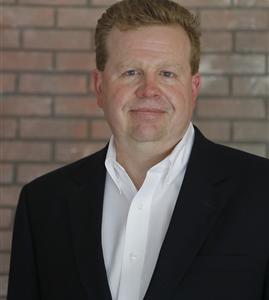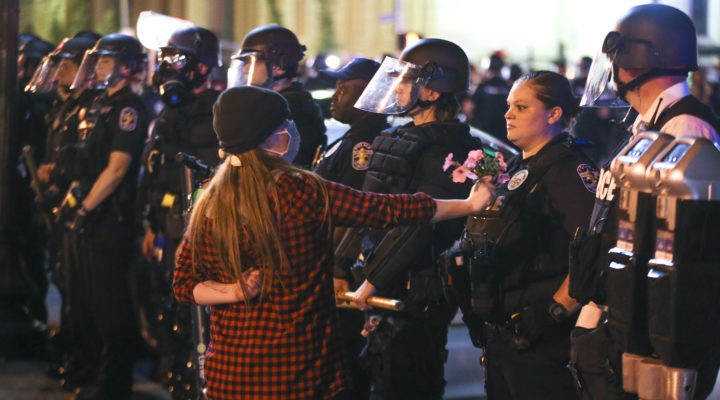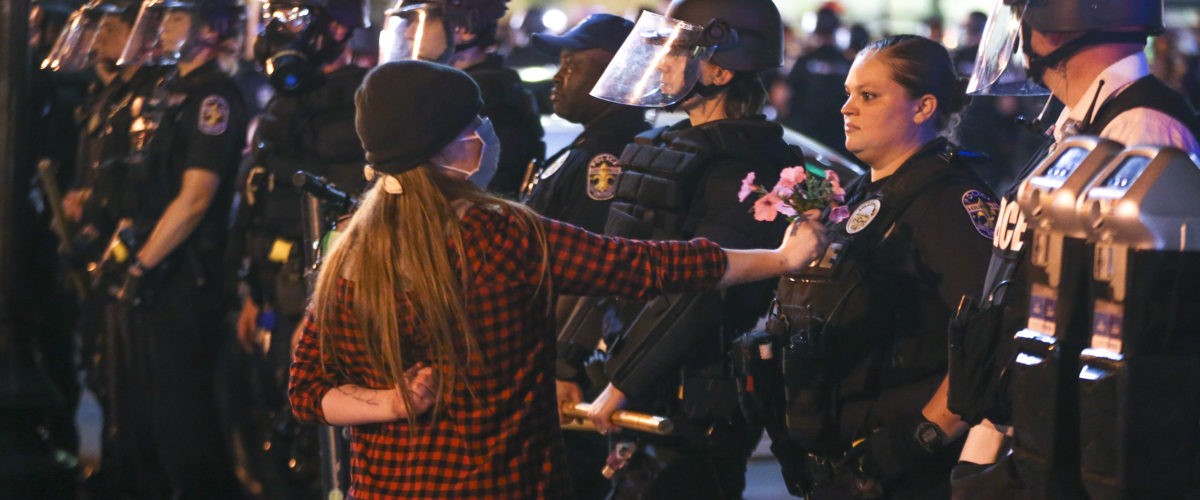Chris Sanders knows theology and law, and he’s an advocate both for labor unions and social justice. That blend of life experience and life passion makes for an interesting conversation these days — with the dueling demands of holding police officers accountable for mistreatment of Black citizens when officers often are shielded by strong provisions of their union contracts.
And there’s the fact that Chris is a longtime resident of Louisville, Ky., where daily protests continue after the police shooting of Breonna Taylor March 13.

Chris Sanders
Chris is a leader at Ridgewood Baptist Church in Louisville, where the congregational motto is “to be a church that loves all people, without barriers.” He holds a master of divinity degree and a law degree and has been active for years at the intersection of social justice and Christian mission and legal representation. He also is a former secretary-treasurer of the Kentucky AFL-CIO and former legal counsel to UFCW Local 227, and twice served as interim coordinator of CBF Kentucky, the state affiliate of the Cooperative Baptist Fellowship.
In private practice, Chris represents Jobs with Justice, a national workers’ rights organization in 26 states. He coordinates Empower West Louisville, a project of historically Black Simmons College of Kentucky, a network of white and Black pastors dedicated to the economic development of segregated Louisville’s West End.
Chris, I know you’re a strong advocate for labor unions and that you approach this commitment with a theological basis. Would you give us your elevator speech about why Christians ought to care about labor movements in general?
In thirty seconds, labor movements are the restless stirring of the human spirit seeking economic freedom and personal dignity in resistance to control when it’s oppressive. Christians moved by the Spirit to follow Jesus among the least of these join together in resistance for themselves and alongside those rising up.
What are some examples you could give from your own life experience to help us understand how the work of unions aligns with a Christian mission for social justice?
I’ve stood in a row of clerics facing cops on a picket line of poultry workers from Guatemala striking for immigrant rights. I’ve walked the halls of Congress with pastors and union officers for living wages. I’ve heard a strong woman bless her union at a speakout for standing with her so she can do God’s work of protecting her nursing-home patients. I’ve prayed and sung before thousands outside (and inside) state capitols as teachers and steelworkers and teamsters made noisy claims to dignity.
How would you make the case to more conservative-minded Christians about the importance of protecting laborers?
The Apostle Paul writes to the churches as though addressing owners and management: Treat your people right, as unto the Lord.
I know this is kind of “inside baseball,” but what sorts of things are standard-issue negotiating points for typical labor unions?
The classic legal language is that labor and management negotiate “wages, hours and working conditions.” All unions seek better hourly rates, health and retirement benefits, overtime, promotion opportunities and job security. Most unions negotiating with private-sector business or public-sector governments don’t demand to set the rules of conduct that govern workplace behavior. Instead, if and when a worker is unfairly accused and fired, unions stand up through the grievance procedure to address overreaching and mismanagement.
And how do most police unions differ from that standard protocol in their negotiations and contracts?
Police unions negotiate wages and overtime, too. But they also negotiate to bolster the “thin blue line.” They insist upon elaborate rules and procedures to resist oversight of cop behavior in investigations, citizen harassment and shootings. Such rules are barriers to oversight by civilian mayors, councils and review boards.
“Fundamentally, police unions are more cop organizations than labor organizations. They are about identity and solidarity in the ranks.”
We’ve heard a lot about the police union in Minneapolis, where George Floyd was murdered, and seen that union head defending three officers who are shown on video either killing or failing to stop the killing of an unarmed Black man. Most of us can’t imagine how Robert Kroll could say the things he’s saying and be taken seriously, yet he is. What’s going on here that we average citizens don’t understand?
Fundamentally, police unions are more cop organizations than labor organizations. They are about identity and solidarity in the ranks. Yes, they bargain wages, and in that sense they stand for aspirational solidarity among all people who work. But their energy and power comes from an us-against-them unity that defies the greater good.
A national coalition of labor unions has joined a coalition of social justice organizations to call for a mass walkout next week, on July 20, to call attention to racism and police brutality. How unusual is this “Strike for Black Lives” in that it appears to be an organized labor event against police officers, who often find their shield from prosecution through their own labor unions? What should we make of this?
It isn’t unusual for labor and racial justice organizations to stand together. The unsung heroes of the 1963 March on Washington for Jobs and Freedom were labor leaders Bayard Rustin, A. Philip Randolph and Walter Reuther. My friend and guide James Orange, one of Dr. King’s young lieutenants, went on to organize workers in the South with the AFL-CIO.
Any union woman or man — Black, white or brown — who has ever stood a picket line has stood facing the police, whether the police are unionized or not. The police always face the protestors, aligned with power and property. But this year’s resistance has reached a new level, as police killings themselves are the focus of the movement. What recent history and today have in common is police brutality and impunity that has to change. Workers’ rights groups around the country — uniting labor, faith and community — will be on the strike lines next week.
You told me in an earlier conversation that many of your friends are telling you they no longer have any use for labor unions at all because of what they see happening with police unions. What’s the danger to the overall labor movement of the present moment, and what can be done to change course?
I hate to hear that people hate all unions because all they know are the cop unions they see on TV now. Organized labor is currently a tiny percentage of the American workforce. Most people don’t know what a union is. Explaining collective bargaining is like explaining to an atheist why General Baptists and Old Separate Baptists are totally different. People just don’t know.
Some say to me their father or grandfather was in a union, and they have a sepia-toned view that a union was a good thing long ago. I wish they would think that teachers and nurses and pilots and poultry workers in unions are a good thing now. The Black Lives Matter protests this spring are evidence that solidarity works. Connect the dots from racial justice in the streets to the workplace, and a new labor movement springs to life.
“America needs to know that unions are more than the cop unions we’re hearing today.”
How are you handling the internal conflict you must feel now about your passion for social justice and your passion for labor movements? How do you reconcile this moment in our culture?
America needs to know that unions are more than the cop unions we’re hearing today. All workers deserve a union, including cops. So, if I had my way, cops would join unions representing all sorts of workers.
What’s next or what do you hope might next happen to bring justice and peace to our troubled society?
The COVID pandemic has brought the worst unemployment in a hundred years. Even worse than the Great Recession only 10 years ago. When America commits to jobs for all, beyond our commitment to profits for the 1% of the 1%, we’ll all share America’s abundance.
If you were called upon to teach a Bible study lesson next Sunday on all this, what would you choose as your text and why?
Jesus’ Nazareth Manifesto in Luke 4. I teach from an evangelistic viewpoint I call “The Way of Mission.” Jesus’ first sermon touches the hearts of his hearers with a dream of a better world for all. Then he prods his synagogue audience to rage by naming names, including us gentiles in the dream. I’d teach that we are in God’s will on mission when we keep our eyes on the prize. I’d teach that Jesus weeps over our Jerusalems when we create and bless garrisons in order to enforce our divides.


